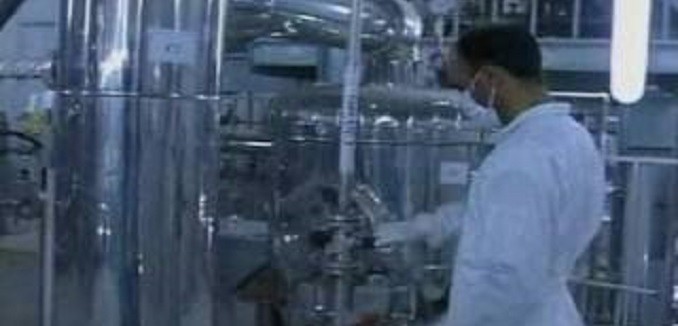Iran has made significant progress in concealing components of its nuclear program, and is “getting better” at the construction and protection of potential undisclosed enrichment facilities, according to statements by senior intelligence officials and analysts published yesterday by the Daily Beast.
“There have been successes in finding secret Iranian sites but we know they are getting better at this,” said David Albright, a former U.N. weapons inspector and president of the Institute for Science and International Security, a nonprofit think tank. “They are better at keeping better secrets, better at compartmentalization of their program and they are better at cyber security.”
One recently retired senior U.S. intelligence official said he believed Iran was trying to build a weapon, but stressed that it’s a slow process. This official also said it would be easy to hide a secret enrichment facility in a warehouse in downtown Tehran. To start, it is difficult to detect uranium enrichment through measuring the changes in atmosphere around a physical plant. The lack of these kinds “signatures” means that the U.S. has to rely more on human assets as opposed to sophisticated satellites and other kinds of technical intelligence gathering to know if enrichment was taking place in a specific location.
The existence of undisclosed facilities would dramatically change assessments regarding Iran’s ability to dash across the nuclear finish line, which Olli Heinonen – a former Deputy Director of the U.N.’s nuclear watchdog and currently a senior fellow at Harvard’s Kennedy School – this week pegged at two weeks. Heinonen and Washington Institute fellow Simon Henderson yesterday published a call urging Washington to “negotiate expeditiously” and emphasizing that any concessions offered to Iran – including the right to continue enriching uranium, which Tehran has repeatedly indicated it will demand – will “soon be demanded by other countries that have previously been denied those rights.” The United Nations Security Council has demanded a full end to Iranian enrichment in half a dozen binding resolutions, and Heinonen and Henderson that “rewarding Iran in this way for noncompliance with its nonproliferation commitments would seem indulgent.” Indeed Gulf states have repeatedly signaled that they intend to acquire nuclear weapons if they perceive that Iran is doing the same. Speaking last week in Washington, former Saudi Arabia’s Ambassador to Washington Prince Turki al-Faisal declared that Iran’s obtainment of a nuclear weapon “will make nuclear arms proliferation in the Middle East the norm” and suggested that the Gulf Cooperation Council (GCC), of which Riyadh is a member, should consider acquiring a “nuclear deterrent” of its own.
[Photo: NTDTV / YouTube]




